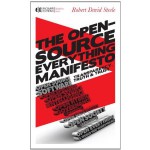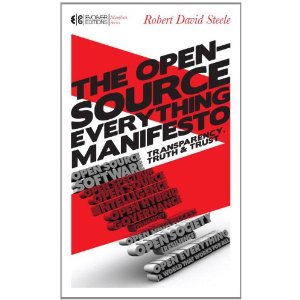
Intelligence for the 99 Percent
David Isenberg
Huffington Post, 27 June 2012
As someone who spends a lot of time thinking about the three Ds (Death, Doom, and Destruction) of international geopolitics I often ponder the way policymakers get their information. Admittedly, there are all sorts of ways to get information but for people in government it means only one thing, the intelligence community..
And when you reflect on the IC all sorts of other questions comes to mind; are taxpayers getting good value for the money, is the IC working effectively, can it be improved, how can it, and, perhaps most important, is there a better way?
That last point brings to mind a new book, THE OPEN SOURCE EVERYTHING MANIFESTO – Transparency, Truth, & Trust” by Robert David Steele
He is a former CIA clandestine services case officer, as well as a Marine Corps infantry and intelligence officer for twenty years. He has promoted the use of open source intelligence (OSINT) for decades. He also runs the most informative Public Intelligence blog.
He has long argued that U.S. intelligence reform is needed and that the private sector can fulfill U.S. OSINT needs more capably and less expensively than the government can.
In other words, if a formal intelligence system is for the one percent, OSINT is for the ninety nine percent.




